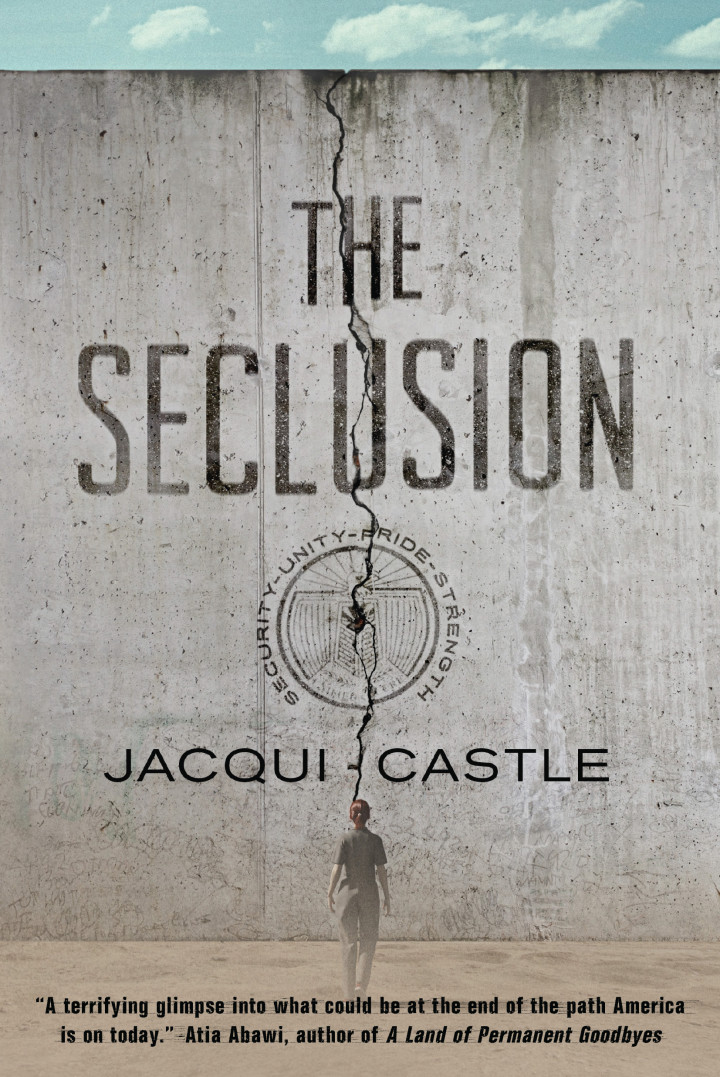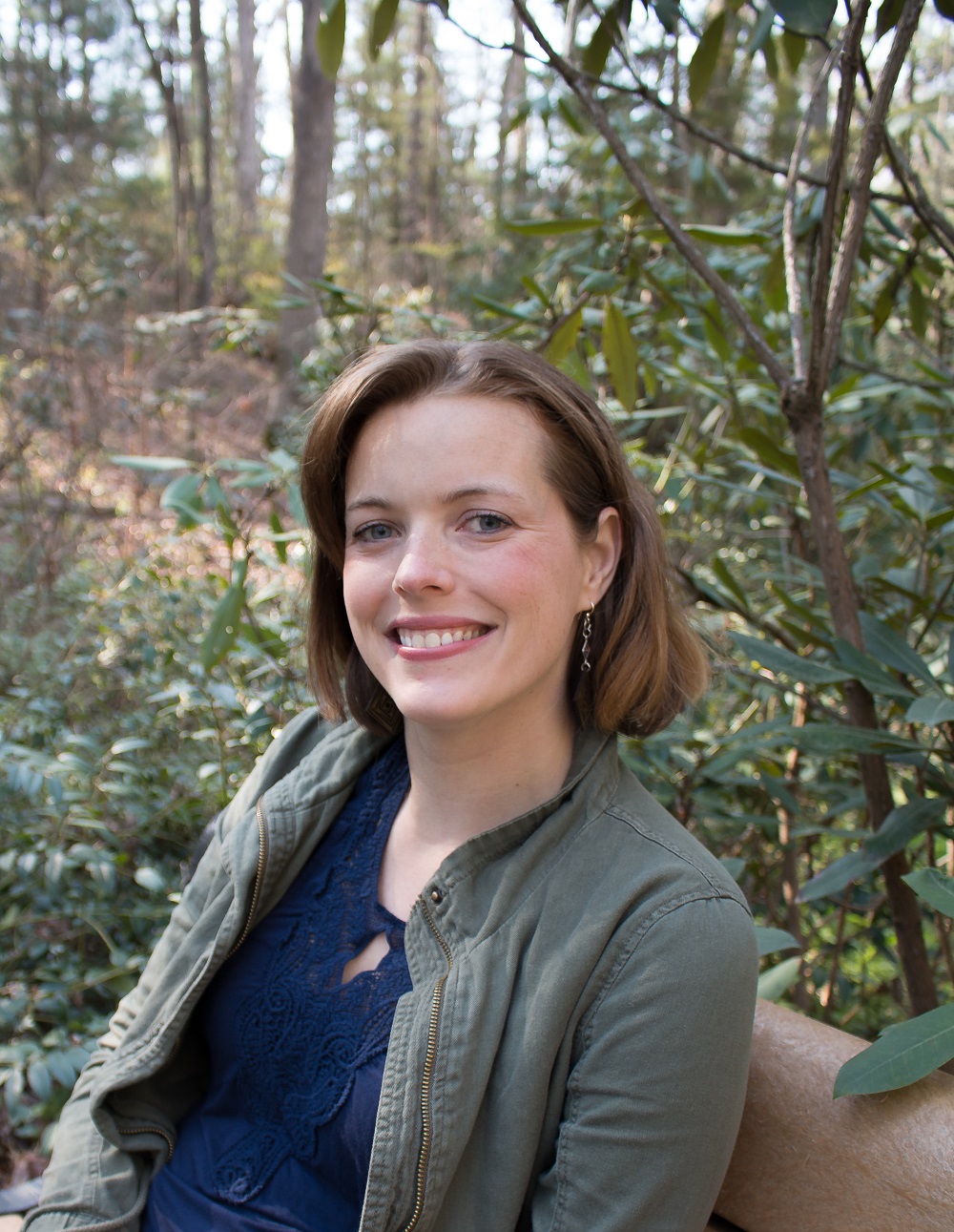The future looks bleak in local writer (and former Xpress contributor) Jacqui Castle’s debut young-adult, dystopian novel, The Seclusion. The year is 2090. The United States stands in isolation with walls extending across both its northern and southern borders. Population control is the new norm because natural resources are in decline. Meanwhile, homes are monitored by cameras, media outlets do not exist, and information is only available to citizens by the country’s totalitarian government, known as the Board.
But there is hope. The book, which Castle intends to be the first in a trilogy, tells the story of Patricia “Patch” Collins and her best friend, Rexx. Both are loyal patriots who work for the Board’s Natural Resource Department. But when the pair discover a collection of forbidden literature, they set out on a quest to uncover the truth about the country’s past. On Tuesday, Sept. 4, Castle will celebrate the book’s release with a launch party at Malaprop’s.
Throughout her career as a freelance writer, Castle has toyed with fiction. But it wasn’t until she began work on The Seclusion that she truly immersed herself in the form. As a mother with two young children, she says the novel-writing process has been “quite a ride.” Along with searching for moments to work on the book, she also had to wrestle with, and eventually overcome, her journalistic inclinations. “I’ll be the first to admit that my first draft really read just like a 350-page information dump,” she says.
For inspiration, Castle drew from classic dystopian novels like George Orwell’s 1984 and Ray Bradbury’s Fahrenheit 451. Meanwhile, contemporary authors such as Patrick Ness, Neal Gaiman and Barbara Kingsolver were influential in her development of the story’s pace and structure.
At the book launch, Castle will read from sections of her debut. She will also discuss the popularity of the dystopian genre. “I think we’re all kind of playing with the what-ifs within our own current climate,” she explains. “I think that’s the reason people have become more interested in reading dystopian literature — for that shred of hope even in the direst of circumstances.”
 That was certainly the case for Castle when she began work on The Seclusion. At the time, it was spring 2016, and the presidential primaries were in full swing. Then-candidate Donald Trump was promising to build a wall along the country’s southern border and have Mexico pay for it. The rhetoric, says Castle, lead her to wonder, “What happens if we go down this road?”
That was certainly the case for Castle when she began work on The Seclusion. At the time, it was spring 2016, and the presidential primaries were in full swing. Then-candidate Donald Trump was promising to build a wall along the country’s southern border and have Mexico pay for it. The rhetoric, says Castle, lead her to wonder, “What happens if we go down this road?”
The book’s subsequent drafts were penned throughout Trump’s first year in office. Castle says the work has proven cathartic. Unlike journalism, which relies on facts, fiction has allowed her to express her frustrations and fears of the current political climate through her characters.
Much of the novel aims to push readers to consider how a nation falls prey to totalitarian rule and what that truly means. What if, for example, “our news was really filtered through our leaders before [we] received it. I think that is one of the biggest themes in the story,” Castle says. “What does that look like if we lose the ability to really communicate directly with each other and no longer have a free press? Where would that lead us?”
In The Seclusion, it leads to a monitored population forced to watch mindless state-run television programs such as “America One: Helping Our Nation Succeed.” Early in the novel, Patch fulfills her patriotic duty by situating herself in front of the screen. Before the show airs, a slogan reminds viewers, “Patriotism is about character — honesty, moral courage, respect and loyalty.”
When the program finally begins, Patch is presented with 10 conversation starters to help bring loved ones closer together. Weather, baseball and fashion all top the list. Despite her best efforts, Patch’s mind wanders before the episode’s end.
This early disinterest is a hint of things to come. “Her character goes through a pretty big transformation throughout the novel,” Castle explains. “In the beginning, she is definitely someone who follows the leadership and takes everything they say as truth and fact. … She feels like the outside is this dangerous, treacherous place.”
Only after Patch begins to uncover the country’s past does her outlook change. “That’s the main point with her,” Castle continues. “If you’re in this world where everything is oppressed and it’s so bleak, how do you still find your individuality and how do you figure out who you are in a situation like this?”
Just as important, the book begs readers to consider the role of the enlightened. Once information is gained, how do you help others knock down the walls they’ve either built or had built around them?
WHO: Jacqui Castle launches The Seclusion
WHERE: Malaprop’s, 55 Haywood St., malaprops.com
WHEN: Tuesday, Sept. 4, at 6 p.m. Free




That sounds like fun, to the extent that dystopia can be fun. Dystopia seems to have an ongoing resonance with young adults because their world is more explicitly defined by prohibitions and mandatory activities set by people who aren’t subject to them, often without a coherent rationale.